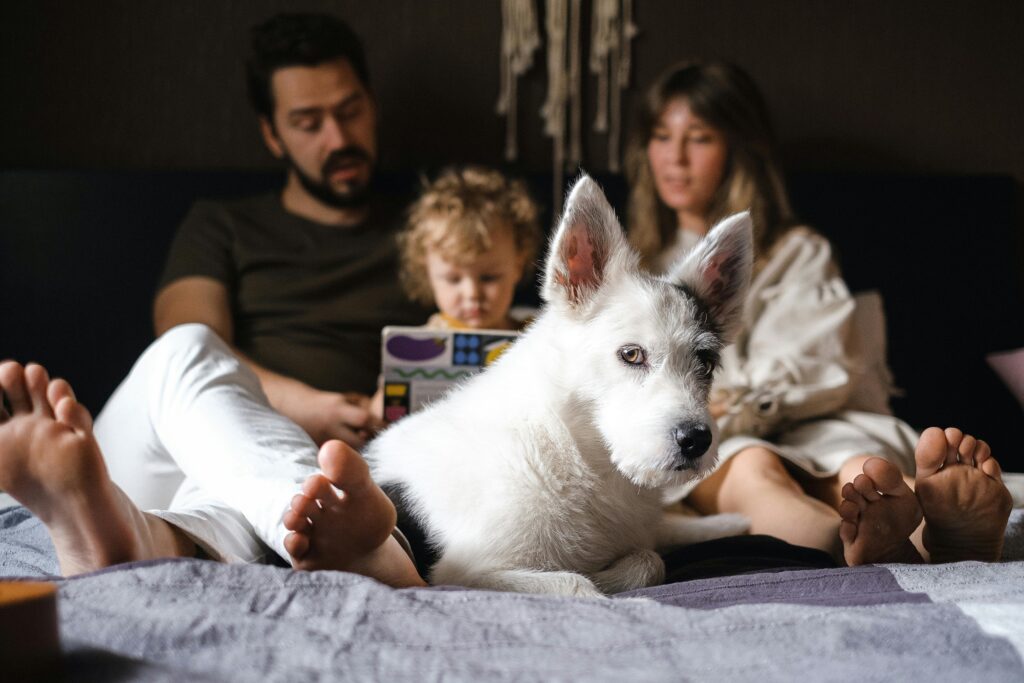Last updated on April 18th, 2024 at 06:20 pm
Choosing the Right Dog for You: A Comprehensive Guide

Adding a dog to your life is a momentous decision that can bring immense joy and companionship. However, selecting the right dog requires thoughtful consideration to ensure a harmonious match with your lifestyle, personality, and living circumstances. With countless breeds and individual personalities to choose from, navigating this choice can feel overwhelming. This guide aims to provide you with comprehensive steps and considerations to help you choose the perfect canine companion.
Click the button below to check out the video embedded in this post for a visual guide!
Understanding Your Lifestyle and Needs
The first step in choosing a dog is to assess your lifestyle and daily routine. Dogs have varying exercise, grooming, and attention requirements, so it’s crucial to select a breed that fits well with your lifestyle. Consider the following questions:
- Activity Level: How much time can you dedicate to exercising and engaging with a dog each day? Some breeds require extensive daily exercise, while others are content with moderate activity.
- Living Environment: Do you live in an apartment or a house with a yard? Some breeds thrive in smaller spaces, while others require room to roam.
- Family Situation: Are there children or other pets in your household? It’s important to choose a dog breed that is known for being good with children or compatible with other animals.
- Allergies: Do you or your family members have allergies? Some breeds are hypoallergenic and produce fewer allergens.
Researching Different Breeds
Once you’ve assessed your lifestyle, start researching different dog breeds to understand their characteristics and temperaments. Each breed has unique traits, energy levels, grooming needs, and health considerations. Consider the following factors:
- Size: Determine whether you prefer a small, medium, or large-sized dog based on your living space and personal preference.
- Temperament: Some breeds are known for being outgoing and sociable, while others are more reserved or independent. Choose a temperament that aligns with your personality.
- Energy Level: Consider the dog’s energy level and exercise requirements. Active breeds may require regular vigorous exercise, while others are more laid-back.
- Grooming Needs: Research grooming requirements such as shedding, coat type, and maintenance. Some breeds require frequent grooming to keep their coats healthy.
- Trainability: Evaluate the breed’s trainability and intelligence. Some breeds are easier to train than others and may be more suitable for first-time dog owners.
Considering Adoption
Adopting a dog from a shelter or rescue organization is a compassionate choice that can provide a loving home to a dog in need. Shelter dogs come in all shapes, sizes, and ages, and many are already house-trained and socialized. Visit local shelters or rescue groups to meet different dogs and see if there’s a connection.
Meeting Dogs in Person
Meeting dogs in person is essential to gauge their personality and compatibility with you. Attend dog shows, visit reputable breeders, or spend time at adoption events to interact with different breeds and individuals. Observe how the dogs interact with you and assess their behavior.
Assessing Temperament and Compatibility
When meeting dogs, pay attention to their temperament and behavior. Look for signs of friendliness, confidence, and adaptability. Consider whether the dog’s personality matches your lifestyle and family dynamics. Some breeds are known for being excellent family dogs, while others may be better suited for single individuals or couples.
Health and Care Needs
Different breeds have varying health considerations and potential genetic predispositions. Research common health issues associated with specific breeds and be prepared for potential veterinary care. Regular exercise, proper nutrition, grooming, and preventative healthcare are essential for your dog’s well-being.
Training and Socialization
Consider the time and effort required for training and socializing your chosen breed. Early socialization is very important for puppies to develop into well-adjusted adult dogs. Commit to providing consistent training and positive reinforcement to shape desired behaviors.
Seeking Expert Advice
Consult with veterinarians, breeders, trainers, or experienced dog owners for guidance and insights. Professionals can provide valuable information about specific breeds, behavior traits, and care requirements. Ask questions and gather recommendations to make an informed decision.
Committing to Responsible Ownership
Once you’ve chosen a dog, commit to responsible ownership and provide a loving and stable environment. Ensure your dog receives proper nutrition, regular exercise, mental stimulation, veterinary care, and grooming. Invest time and effort into building a strong bond with your dog through training, playtime, and affection.
Conclusion
Choosing the right dog involves careful consideration of your lifestyle, preferences, and commitment level. By researching different breeds, meeting dogs in person, and assessing temperament and compatibility, you can find a canine companion that enriches your life and brings lasting joy. Remember that every dog is an individual, and finding the perfect match may require patience and exploration. Ultimately, a well-matched dog will become a beloved member of your family and a source of unconditional love and companionship for years to come.
